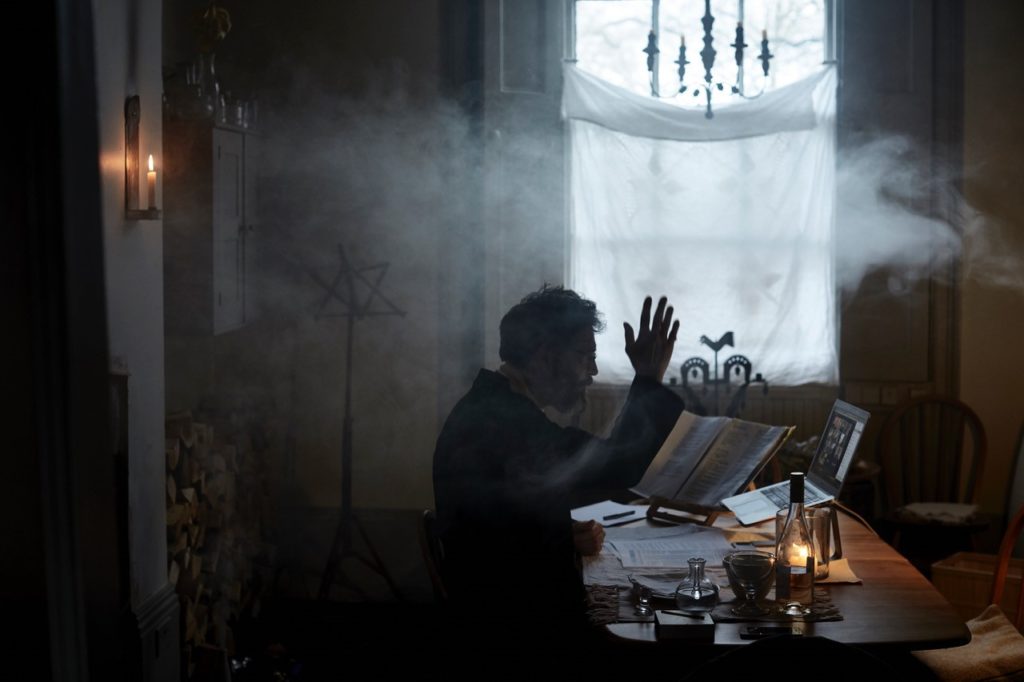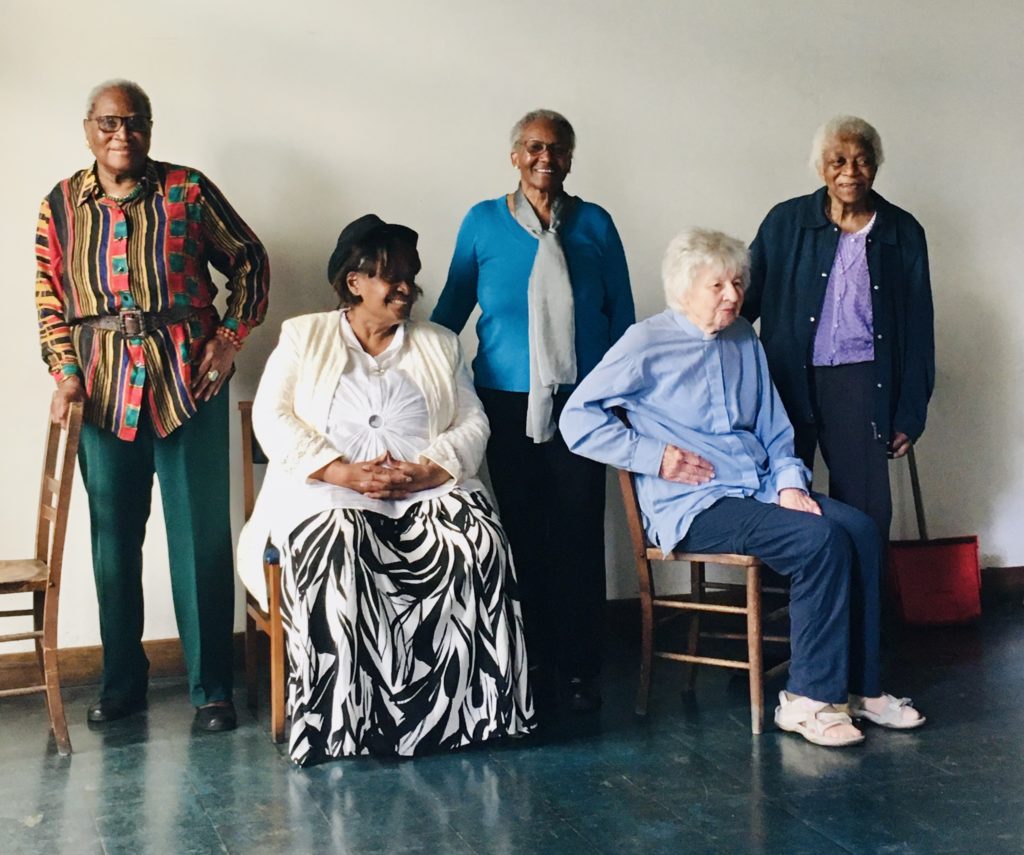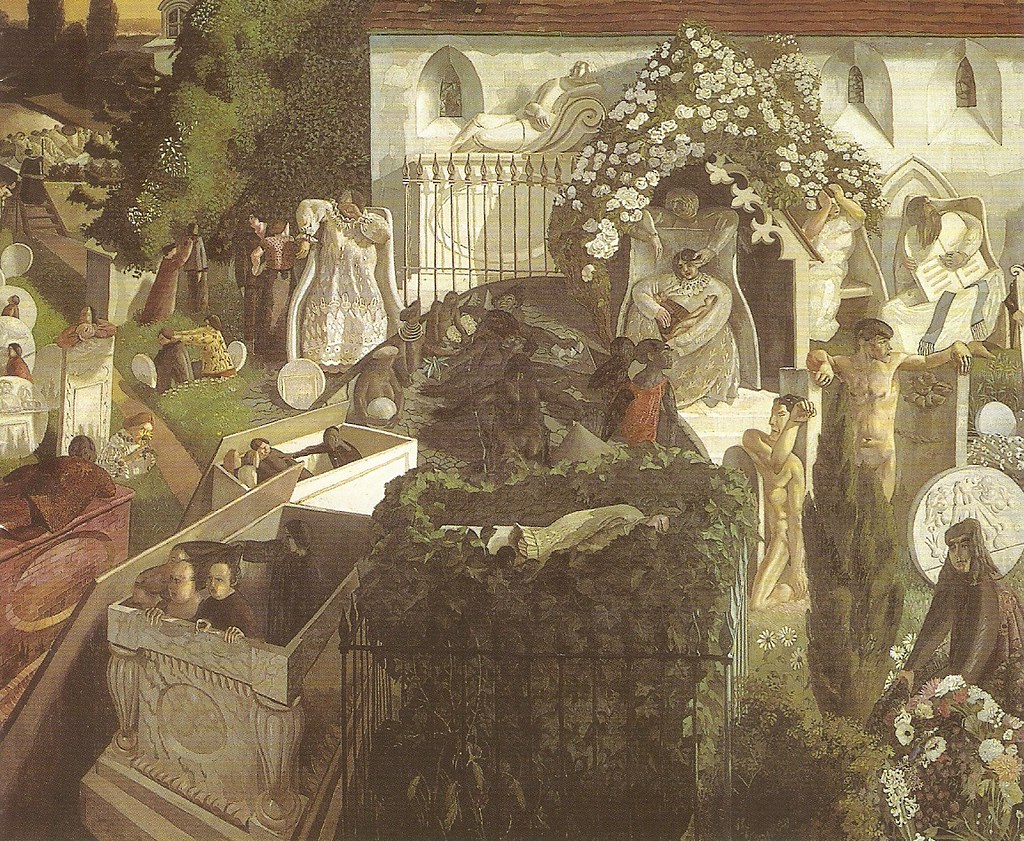Can we bless on zoom?
 When I was training to be a priest I was told that you can only bless somebody if you can also throw water over them at the same time. I suppose the point was that a blessing has to be offered live and it requires physical presence.
When I was training to be a priest I was told that you can only bless somebody if you can also throw water over them at the same time. I suppose the point was that a blessing has to be offered live and it requires physical presence.
This made some sense. A blessing is different from praying for someone – or “keeping them in mind” as we more coyly put it – because a blessing is, at some level, a call and response. It is direct and personal, consensual even. Often people bow their heads as you raise your hand. Or as sometimes happens in church, when they’re not interested, they will cross their arms and stare you out.
Then when I became a parish priest I discovered the use of the telephone call. When people ring you they often want something there and then. So you pray with them and sometimes you bless them too. At first I wondered whether it actually worked if you couldn’t see them. Quite quickly I stopped worrying about that. I guess that’s the way with most innovations. You respond to the need in front of you.
Then just before Easter last year we all found ourselves on planet zoom. Adapting quickly to waiting rooms and screen sharing, it was great being able to mute people who were going on a bit. And what fun it was to generate thumbs up emojis instead of saying Amen. But as we proceeded to experiment with “digital masses” or “zoomunions”, some doubts entered my mind. Can you absolve on line? Can you actually consecrate the elements of bread and wine across the internet?
Throughout the pandemic the Church of England has responded quickly with detailed protocols on managing health and safety risks in church. But there has been little guidance to clergy on how to perform our liturgies, on what we’re doing and why we’re doing it.
So, recently, as we retuned again on line, I wrote to my Archdeacon. I asked her whether we should officially record the numbers at our services as communicants, as those who are receiving the communion at home, or as just attendees? She wrote back to me:
“The vicar should consume on behalf of online worshippers who should observe; one cannot be a communicant unless one is physically present.”
This wasn’t our experience in our little fellowship where we had encouraged everyone to prepare their home altars and to hold up the bread and the wine as the president held up theirs during the prayers of consecration. Should the people really be encouraged to sit at home, a couch congregation, simply staring at the priest behind a digital rood screen? And what does that actually say about our membership together of the one body?
So I asked for a little more clarification. She referred me to another Archdeacon who explained:
“To say mass the priest must be in the presence of the elements as taking and breaking are integral to the rite which is not magic words but a sacramental action comprising both ritual (words) and (ceremonial) actions to minister both the sign & the substance.”
He also referred me to a document on line that quotes the Sacrament Act 1547 in which clergy are forbidden from innovating. To do otherwise is not just poor show but also potentially illegal: when you can’t receive in two kinds “there is no legal basis for clergy to make alternative arrangements”.
Were we making alternative arrangements? Are we breaking the law? Is the bishop going to intervene? We wait to see.
Waiting for the bishop to correct one’s Eucharistic theology is just one hazard of zoom.
When we began to use this platform last year we were warned about a phenomenon called zoom bombing. Apparently a meeting of clergy in a neighbouring chapter had been deep in a moment of sharing when their screens were suddenly taken over by a series of highly pornographic images. Someone obviously thought that this would be a fun group to torment and had sneaked onto the call.
So we’re careful at church about who gets our link. I keep a close eye on newcomers. As I’ve learned how to mute, so too I have learned how to block and how to eject.
Thankfully I’ve not had to use this excellent bit of functionality. That is until recently. A few weeks ago I saw a new person arriving at our Sunday service who called themselves “poo”. They did not put on their camera and they declined to declare themselves when challenged in the chat. With the chapter experience in mind I removed them peremptorily from the call.
Sometime later one of my PCC members rang me to ask why she had been kicked out of the service. It turns out that her young son had used her computer the day before for a call with his friends. He had changed the name on the account and then he had forgotten to change it back.
I suppose it just goes to show that we need to be who we say we are, even when we are gathering online. This is what it means to be accountable as a body and what it means to be present to one another and to God.
And even though we can’t touch one another we are still able to share in a common life at the altars in our homes, at the altars of our hearts. As communicants, surely, however provisionally.
If you want to subscribe to my monthly newsletter, and why wouldn’t you, please put your email into the box at the top of the page



